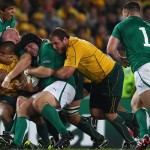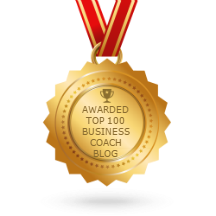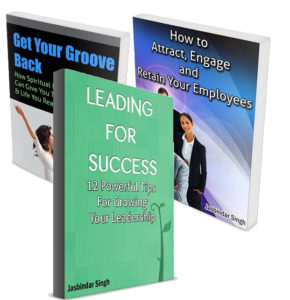 The RWC has kicked off unleashing with it a sense of national pride, passion, fun and excitement. All these factors also lend themselves to a sense of engagement whether at work or play. High employee engagement is what all employers and business want as research shows a direct correlation with bottom line measures such as profitability and productivity. Engaged employees produce better results with higher sales, greater teamwork, loyalty and customer service and less absenteeism.
The RWC has kicked off unleashing with it a sense of national pride, passion, fun and excitement. All these factors also lend themselves to a sense of engagement whether at work or play. High employee engagement is what all employers and business want as research shows a direct correlation with bottom line measures such as profitability and productivity. Engaged employees produce better results with higher sales, greater teamwork, loyalty and customer service and less absenteeism.
So how do we get the best out of people during the RWC – when they are likely to be distracted, fatigued, and some would rather be watching the games than be at work?
Whether you are a business owner, employee or manager and leader be mindful of the following over the next five weeks. These issues were discussed at a recent HRINZ (Human Resources Institute New Zealand) leadership SIG meeting in Auckland, attended by over 40 managers and Human Resources professionals from a diverse range of industries and where Coca Cola Amatil – a major RWC sponsor – shared strategies for encouraging employee engagement at work.
Business as Unusal – the workplace is likely to be and feel different and adjustments will have to be made so manage your expectations accordingly. Managing people’s leaves, sick days and or extra staff may be needed.
Logistics – Notice what’s working and what’s not and make adjustments accordingly. Is your workforce and business planning requirements accurate as the weeks pan out? Do you need specialist resources? Has the work dipped and can you afford to allow more people to take annual leave?
Flexibility – Plan for all the things you can anticipate and be proactive with. However, what often gets us is the unexpected. By having mental and emotional agility you will be able to deal with whatever comes your way.
Fairness – Whatever actions you take – ensure that it is not only fair but it’s perceived as being fair. There is life beyond the RWC and what you do now helps building the emotional bank account.
Communication – Consistent and regular communication is necessary to keep people engaged and focused on the right things.
Whatever else you do, have a game plan and play off the mantra of communication, flexibility, and fairness and you will score well with your customers and people alike.
Social Media – How can you use social media to good end – for example, the latest information on crowd build and traffic congestion. What is your policy on social media? Does this change during the RWC and do people know about this?
Teamwork – The RWC offers a very practical and motivational opportunity for building a sense of team camaraderie and fostering greater team work, attitude and behaviors. You could initiate a regular discussion on how your team compares and or contrasts with the key team behaviors that the All Blacks and other winning teams will be demonstrating. For example, some key questions to discuss with your team could focus on the following:
Game plan – what is our game plan and how are we tracking?
Strategy – Is our strategy still working or do we need to change something?
Strengths based – are we drawing on everyone’s strengths and is everyone playing to it? Are we conscious of other peoples’ strengths and weaknesses as well as our own?
Collaboration – How well are we collaborating with other team members for the overall success and win?
Team roles – have we go the right people in the team doing the things they do best and are they able to rely on others to do the same?
Team Captain – Are we respectful of our team leader and show them support?
Listening and acknowledging – Are we good at listening to each other, receiving as well as giving feedback and acknowledging others? Are we able to have those courageous conversations?
Values – How do I live the stated values of this team? If someone was observing me, would they be able to tell fairly quickly whether I was living the values and or “walking the talk?”
Fun and passion – How are we creating a sense of passion, fun and commitment on an ongoing basis?
Responsibility and accountability – Do I play above the line and take responsibility for my actions including mistakes? Do I take ownership and deliver on what I am accountable for? Am I able to hold others to account?
Post match analysis – As a team, how well are we able to monitor and review our performance? Do we engage in regular dialogue and conversations that help the team become more match-fit and grow on all levels – physically, emotionally, mentally and spiritually?
Underutilized strengths – in your day to day role, you may have some strength that you have a talent for or are motivated by. For example, you may be good at organizing events and creating a spirit of celebration. This could be an ideal time to demonstrate those skills and open up opportunities in the future.
Diversity – be mindful that everyone is not into Rugby and while they may join in the spirit of things or be so over it – let that be an okay part of your culture as well. Model tolerance with the message that differences are okay as after all, diversity creates enrichment and “one size fits all” is not what leads to creativity and innovation.
When healthy rivalry crosses the line – healthy rivalry can be fun and energizing but sometimes things can turn serious. If this happens do acknowledge it and remind people what is acceptable and what the rules and consequences are.
There may well be a temporary dip in energy and engagement after the games. Get input and feedback from team members and continue to build on some of the more successful initiatives beyond the games. In the meantime, let’s cheer for the All Blacks and let’s hope that on October 23, New Zealand is awash with a buzz and there is a proud Kiwi in every corner of the globe.
An edited version of this article is also in the NZ Herald.
Photo source – The RWC site
Jasbindar works with organisations and coaches senior leadership teams to increase leadership effectiveness and team engagement.






 Follow Jasbindar on Twitter
Follow Jasbindar on Twitter



